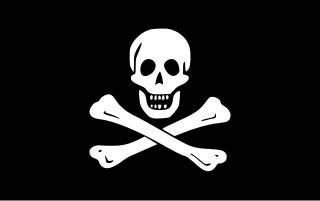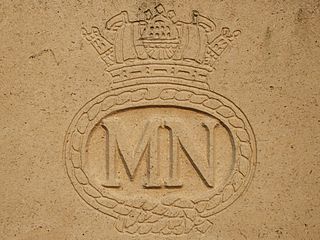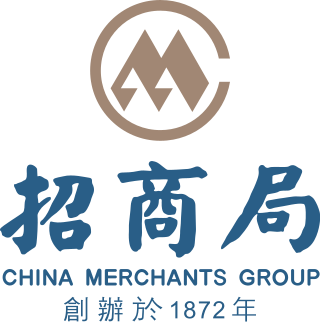Related Research Articles

The Office of National Assessments (ONA) was an Australian statutory intelligence agency established by the Office of National Assessments Act 1977 as an independent statutory body directly accountable to the Prime Minister of Australia as a portfolio agency of the Department of the Prime Minister and Cabinet. ONA provided all-source assessments on international political, strategic and economic developments to the Prime Minister and the National Security Committee of Cabinet. ONA also played a coordination role in the Australian Intelligence Community through evaluating foreign intelligence products, convening the National Intelligence Coordination Committee, and developing relationships with intelligence agencies around the world.

.

The Strait of Malacca is a narrow stretch of water, 800 kilometres (500 mi) long and from 65 to 250 km wide, between the Malay Peninsula to the northeast and the Indonesian island of Sumatra to the southwest, connecting the Andaman Sea and the South China Sea. As the main shipping channel between the Indian and Pacific oceans, it is one of the most important shipping lanes in the world.
Transparency International e.V. (TI) is a German registered association founded in 1993 by former employees of the World Bank. Based in Berlin, its nonprofit and non-governmental purpose is to take action to combat global corruption with civil societal anti-corruption measures and to prevent criminal activities arising from corruption. Its most notable publications include the Global Corruption Barometer and the Corruption Perceptions Index. TI serves as an umbrella organization. From 1993 to today, its membership has grown from a few individuals to more than 100 national chapters, which engage in fighting perceived corruption in their home countries. TI is a member of G20 Think Tanks, UNESCO Consultative Status, United Nations Global Compact, Sustainable Development Solutions Network and shares the goals of peace, justice, strong institutions and partnerships of the United Nations Sustainable Development Group (UNSDG). TI is a social partner of Global Alliance in Management Education. TI confirmed the dis-accreditation of the national chapter of United States of America in 2017.

The International Institute for Strategic Studies (IISS) is an international research institute or think tank focusing on defence and security issues. Since 1997, its headquarters have been at Arundel House in London. It has offices on four continents, producing data and research on questions of defence, security and global affairs, publishing publications and online analysis, and convening major security summits. The Guardian newspaper has described the IISS as ‘one of the world’s leading security think tanks.’

Investment banking is an advisory-based financial service for institutional investors, corporations, governments, and similar clients. Traditionally associated with corporate finance, such a bank might assist in raising financial capital by underwriting or acting as the client's agent in the issuance of debt or equity securities. An investment bank may also assist companies involved in mergers and acquisitions (M&A) and provide ancillary services such as market making, trading of derivatives and equity securities, FICC services or research. Most investment banks maintain prime brokerage and asset management departments in conjunction with their investment research businesses. As an industry, it is broken up into the Bulge Bracket, Middle Market, and boutique market.

The British Merchant Navy is the collective name given to British civilian ships and their associated crews, including officers and ratings. In the UK, it is simply referred to as the Merchant Navy or MN. Merchant Navy vessels fly the Red Ensign and the ships and crew are regulated by the Maritime and Coastguard Agency (MCA), a specialist agency of the UK Department of Transport. British merchant ships are registered under the UK or Red Ensign group ship registries. British Merchant Navy deck officers and ratings are certificated and trained according to STCW Convention and the syllabus of the Merchant Navy Training Board in maritime colleges and other training institutes around the UK.

Financial services are economic services tied to finance provided by financial institutions. Financial services encompass a broad range of service sector activities, especially as concerns financial management and consumer finance.

Axa S.A. is a French multinational insurance corporation headquartered in the 8th arrondissement of Paris. It also provides investment management and other financial services via its subsidiaries. As of 2023, it is the largest financial services company by revenue in France, and the 4th largest French company.
A sea lane, sea road or shipping lane is a regularly used navigable route for large water vessels (ships) on wide waterways such as oceans and large lakes, and is preferably safe, direct and economic. During the Age of Sail, they were determined by the distribution of land masses but also by the prevailing winds, whose discovery was crucial for the success of long maritime voyages. Sea lanes are very important for seaborne trade.

The Germanischer Lloyd SE was a classification society based in the city of Hamburg, Germany. It ceased to exist as an independent entity in September 2013 as a result of its merger with Norway's DNV to become DNV GL.

China Merchants Group Limited is a state-owned enterprise (SOE) of the People's Republic of China. The company operates under the auspices of the Chinese Ministry of Transport.

First Bank of Nigeria is a multinational bank and financial services company with headquarters in Lagos, Nigeria. First Bank was founded in 1894, by Sir Alfred Jones, but is currently owned by FBN Holdings PLC, which in itself has diversified ownership with over 1.3 million shareholders.

Avinash D. Persaud is emeritus Professor of Gresham College in the UK. He was the Chairman of Intelligence Capital Ltd., a company specializing in analyzing, managing and creating financial liquidity in investment projects and portfolios. He was also the non-Executive Chairman of the London-based Elara Capital, an investment bank. Persaud was a Non-resident Senior Fellow of the Peterson Institute of International Economics, Executive Fellow of London Business School and Senior Fellow with the Caribbean Policy Research Institute and Head of its Barbados office.
Piracy off the coast of Somalia occurs in the Gulf of Aden, Guardafui Channel, and Somali Sea, in Somali territorial waters and other surrounding places and has a long troubled history with different perspectives from different communities. It was initially a threat to international fishing vessels during the early 2000s, only to rapidly escalate and expand to international shipping during the War in Somalia (2006–2009).
G3, or the Good Governance Group, is a strategic advisory consultancy which specialises in providing advice on risk mitigation, governance, cyber security and regulatory compliance.
Stuart Poole-Robb joined in 2007 and was appointed MD of the KCS Group Europe Company Ltd, a London-headquartered strategic intelligence and risk management consultancy.
NYA International is a global risk and strategic consulting firm specializing in security and operational risk headquartered in London, United Kingdom, with regional offices in New York City, United States and Singapore. The company's consulting services include incident and crisis response, security risk management and crisis management.
A Private Maritime Security Company (PMSC) is a form of Private Military Company that offers services in the maritime sector.
Danish shipping's counter-piracy strategy is necessary as Denmark operates one of the world's five largest shipping nations in terms of operated fleet, controlling around 10% of global shipping. At any given time, there are approximately 70 Danish-controlled ships in the Indian Ocean and 30 ships in the Gulf of Guinea. This makes piracy in these areas is a significant concern for the Danish shipping industry and for the Danish state. In 2012, when Somali piracy was at its height, the piracy cost of Danish shipping was estimated to be between 130 and 260 million Euros.
References
- ↑ Daily Telegraph, "Against their wishes, journalists are now seen as combatants"
- ↑ Register of Lords Interests
- ↑ Money AM
- ↑ Clients
- ↑ World Bank Group, "Governance Matters"
- ↑ Transparency International Archived 2011-09-03 at the Wayback Machine
- ↑ International Maritime
- ↑ StrategicRisk Archived 2011-10-02 at the Wayback Machine